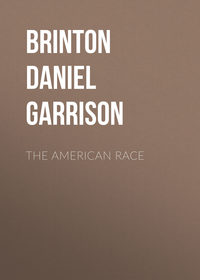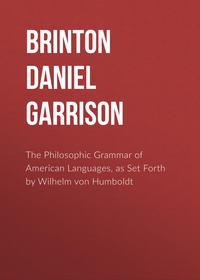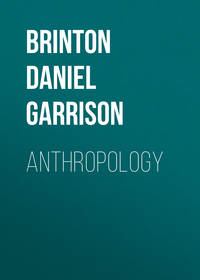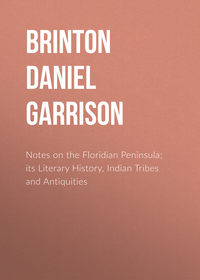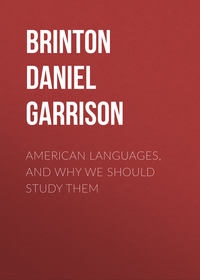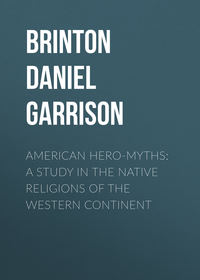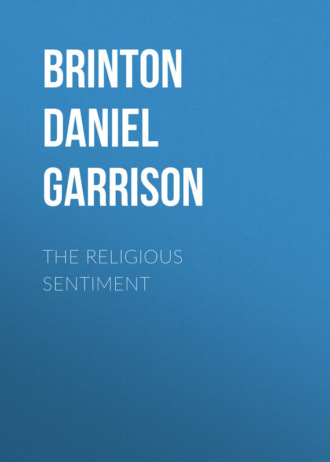 полная версия
полная версияThe Religious Sentiment
The more thoughtful votaries of the higher forms of religion have, however, frequently drawn the distinction between the direct and indirect fulfilment of the wish. An abundant harvest, restoration to health, or a victory in battle is the object of our hopes, not in itself, but for its results upon ourselves. These, in their final expression, can mean nothing else than agreeable sensations and pleasurable emotions. These, therefore, are the real though indirect objects of such prayers; often unconsciously so, because the ordinary devotee has little capacity and less inclination to analyze the nature of his religious feelings.
A recent writer, Mr. Hodgson, has said: “The real answer to prayer is the increase of the joyful emotions, the decrease of the painful ones.”86 It would seem a simpler plan to make this directly the purport of our petitions; but to the modern mind this naked simplicity would be distasteful.
Nor is the ordinary supplicant willing to look so far. The direct, not the indirect object of the wish, is what he wants. The lazzarone of Naples prays to his patron saint to favor his choice of a lottery ticket; if it turn out an unlucky number he will take the little leaden image of the saint from his pocket, revile it, spit on it, and trample it in the mud. Another man, when his prayer for success is not followed by victory, sends gifts to the church, flogs himself in public and fasts. Xenophon gives us in his Economics the prayer of a pious Athenian of his time, in the person of Ischomachus. “I seek to obtain,” says the latter, “from the gods by just prayers, strength and health, the respect of the community, the love of my friends, an honorable termination to my combats, and riches, the fruit of honest industry.” Xenophon evidently considered these appropriate objects for prayer, and from the petitions in many recent manuals of devotion, I should suppose most Christians of to-day would not see in them anything inappropriate.
In spite of the effort that has been made by Professor Creuzer87 to show that the classical nations rose to a higher use of prayer, one which made spiritual growth in the better sense of the phrase its main end; I think such instances were confined to single philosophers and poets. They do not represent the prayers of the average votary. Then and now he, as a rule, has little or no idea of any other answer to his prayer than the attainment of his wish.
As such petitions, however, more frequently fail than succeed in their direct object, and as the alternative of considering them impotent is not open to the votary, some other explanation of their failure was taught in very early day. At first, it was that the god was angered, and refused the petition out of revenge. Later, the indirect purpose of such a prayer asserted itself more clearly, and aided by a nobler conception of Divinity, suggested that the refusal of the lower is a preparation for a higher reward. Children, in well-ordered households, are frequently refused by parents who love them well; this present analogy was early seized to explain the failure of prayer. Unquestioning submission to the divine will was inculcated. Some even went so far as to think it improper to define any wish at all, and subsumed all prayer under the one formula, “Thy will be done.” Such was the teaching of St. Augustine, whose favorite prayer was Da quod jubes, et jube quod vis, a phrase much criticized by Pelagius and others of his time as too quietistic.88 The usual Christian doctrine of resignation proceeds in theory to this extent. Such a notion of the purpose of prayer leads to a cheerful acceptance of the effects of physical laws, effects which an enlightened religious mind never asks to be altered in its favor, for the promises and aims of religion should be wholly outside the arena of their operation. The ideal prayer has quite other objects than to work material changes.
To say, as does Mr. Hodgson, that its aim is the increase of the joyful emotions is far from sufficient. The same may be said of most human effort, the effort to make money, for instance. The indirect object of money-making is also the increase of the agreeable feelings. The similarity of purpose might lead to a belief that the aims of religion and business are identical.
Before we can fully decide on what, in the specifically religious sense of the word, is the answer to prayer, we should inquire as a matter of fact what effect it actually exerts, and to do this we should understand what it is as a psychological process. The reply to this is that prayer, in its psychological definition, is a form of Expectant Attention. It is always urged by religious teachers that it must be very earnest and continuous to be successful. “Importunity is of the essence of successful prayer,” says Canon Liddon in a recent sermon. In the New Testament it is likened to a constant knocking at a door; and by a curious parity of thought the Chinese character for prayer is composed of the signs for a spirit and an axe or hammer.89 We must “keep hammering” as a colloquial phrase has it. Strong belief is also required. To pray with faith we must expect with confidence.
Now that such a condition of expectant attention, prolonged and earnest, will have a very powerful subjective effect, no one acquainted with the functions of the human economy can doubt. “Any state of the body,” observes the physiologist Müller, “expected with certain confidence is very prone to ensue.” A pill of bread-crumbs, which the patient supposes to contain a powerful cathartic, will often produce copious evacuations. No one who studies the history of medicine can question that scrofulous swellings and ulcerations were cured by the royal touch, that paralytics have regained the use of their limbs by touching the relics of the saints, and that in many countries beside Judea the laying on of hands and the words of a holy man have made issues to heal and the lame to walk.90
Such effects are not disputed by physicians as probable results of prayer or faith considered as expectant attention. The stigmata of St. Francis d’Assisi are more than paralleled by those of Louise Lateau, now living at Bois d’Haine in Belgium, whose hands, feet and side bleed every Friday like those of Christ on the cross. A commission of medical men after the most careful precautions against deception attributed these hemorrhages to the effect of expectation (prayer) vastly increased in force by repetition.91 If human testimony is worth anything, the cures of Porte Royale are not open to dispute.92
The mental consequences of a prayerful condition of mind are to inspire patience under afflictions, hope in adversity, courage in the presence of danger and a calm confidence in the face of death itself. How mightily such influences have worked in history is shown in every religious war, and in the lives of the martyrs of all faiths. It matters not what they believed, so only that they believed it thoroughly, and the gates of Hades could not prevail against them.
No one will question that these various and momentous results are the legitimate effects or answers to prayers. But whether prayer can influence the working of the material forces external to the individual is a disputed point. If it cannot in some way do this, prayers for rain, for harvests, for safety at sea, for restoration to health, for delivery from grasshoppers93 and pestilence, whether for our own benefit or others, are hardly worth reciting. A physicist expresses the one opinion in these words: “Science asserts that without a disturbance of natural law, quite as serious as the stoppage of an eclipse or the rolling of the St. Lawrence up the Falls of Niagara, no act of humiliation, individual or national, could call one shower from heaven or deflect toward us a single beam of the sun.” “Assuming the efficacy of free prayer to produce changes in external nature, it necessarily follows that natural laws are more or less at the mercy of man’s volition.”94
This authoritative statement, much discussed at the time it was published, does not in fact express the assertion of science. To the scientific apprehension, man’s volitions and his prayers are states of emotion, inseparably connected in their manifestations with changes in his cerebral structure, with relative elevation of temperature, and with the elimination of oxygen and phosphorus, in other words with chemico-vital phenomena and the transformation of force. Science also adds that there is a constant interaction of all force, and it is not prepared to deny that the force expended by a national or individual prayer may become a co-operating cause in the material change asked for, even if the latter be a rain shower. This would not affect a natural law but only its operation, and that much every act of our life does. The fact that persistency and earnestness in prayer —i. e., the increased development of force – add to its efficacy, would accord with such a scientific view. It would further be very materially corroborated by the accepted doctrine of the orders of force. A unit of electrical or magnetic force equals many of the force of gravity; a number of electrical units are required to make one of chemical force; and chemico-vital or “metabolic” force is still higher; whereas thought regarded as a form of force must be vastly beyond this again.
To render a loadstone, which lifts filings of iron by its magnetic force, capable of doing the same by the force of gravity, its density would have to be increased more than a thousand million times. All forces differ in like degree. Professor Faraday calculated that the force latent in the chemical composition of one drop of water, equals that manifested in an average thunderstorm. In our limited knowledge of the relation of forces therefore, a scientific man is rash to deny that the chemico-vital forces set loose by an earnest prayer may affect the operation of natural laws outside the body as they confessedly do in it.
Experience alone can decide such a question, and I for one, from theory and from observation, believe in the material efficacy of prayer. In a certain percentage of the cases where the wished-for material result followed, the physical force of the active cerebral action has seemed to me a co-operating cause. A physician can observe this to best advantage in the sickness of children, as they are free from subjective bias, their constitutions are delicately susceptible, and the prayers for them are in their immediate vicinity and very earnest.
But this admission after all is a barren one to the truly devout mind. The effect gained does not depend on the God to whom the prayer is offered. Blind physical laws bring it about, and any event that comes through their compulsive force is gelded of its power to fecundate the germs of the better religious life. The knowledge of this would paralyze faith.
Further to attenuate the value of my admission, another consideration arises, this time prompted not by speculative criticism, but by reverence itself. A scholar whom I have already quoted justly observes: “Whenever we prefer a request as a means of obtaining what we wish for, we are not praying in the religious sense of the term.”95 Or, as a recent theologian puts the same idea: “Every true prayer prays to be refused, if the granting of it would be hurtful to us or subversive of God’s glory.”96 The real answer to prayer can never be an event or occurrence. Only in moments of spiritual weakness and obscured vision, when governed by his emotions or sensations, will the reverent soul ask a definite transaction, a modification in the operation of natural laws, still less such vulgar objects as victory, wealth or health.
The prayer of faith finds its only true objective answer in itself, in accepting whatever befalls as the revelation of the will of God as to what is best. This temper of mind as the real meaning of prayer was beautifully set forth by St. John: “If we know that he hear us, whatsoever we ask, we know that we have the petitions that we desired of him.”97
But this solution of the problem does not go far enough. Prayer is claimed to have a positive effect on the mind other than resignation. Joyful emotions are its fruits, spiritual enlightenment its reward. These are more than cheerful acquiescence, nor can the latter come from objects of sense.
The most eminent teachers agree in banishing material pleasure and prosperity from holy desires. They are of one mind in warning against what the world and the flesh can offer, against the pursuit of riches, power and lust. Many counsel poverty and deliberate renunciation of all such things. Nor is the happiness they talk of that which the pursuit of intellectual truth brings. This, indeed, confers joy, of which whoever has tasted will not hastily return to the fleshpots of the senses, but it is easy to see that it is not religious. Prayer and veneration have not a part in it. Great joy is likewise given by the exercise of the imagination when stirred by art in some of its varied forms, and a joy more nearly allied to religion than is that of scientific investigation. But the esthetic emotions are well defined, and are distinctly apart from those concerned with the religious sentiment. Their most complete satisfaction rather excludes than encourages pious meditations. That which prayer ought to seek outside of itself is different from all of these, its dower must be divine.
We need not look long for it. Though hidden from the wise, it has ever been familiar to the unlearned. Man has never been in doubt as to what it is. He has been only too willing to believe he has received it.
In barbarism and civilization, in the old and new worlds, the final answer to prayer has ever been acknowledged to be inspiration, revelation, the thought of God made clear to the mind of man, the mystical hypostasis through which the ideas of the human coincide with those of universal Intelligence. This is what the Pythian priestess, the Siberian shaman, the Roman sibyl, the Voluspan prophetess, the Indian medicine-man, all claimed in various degrees along with the Hebrew seers and the Mahometan teacher.98
The TRUTH, the last and absolute truth, is what is everywhere recognized as, if not the only, at least the completest, the highest answer to prayer. “Where I found the truth, there I found my God, himself the truth,” says St. Augustine; and in a prayer by St. Chrysostom, the “Golden Mouth,” unsurpassed in its grand simplicity, it is said: “Almighty Father, * * grant us in this world knowledge of Thy truth, and in the world to come, life everlasting.” Never has the loftiest purpose of prayer been more completely stated. This it was that had been promised them by Him, to whom they looked as an Intercessor for their petitions, who had said: “I will send unto you the Comforter. * * When he, the Spirit of Truth, is come, he will guide you unto all truth.”
The belief that this answer is at all times attainable has always been recognized by the Christian Church, Apostolic, Catholic, and Protestant. Baptism was called by the Greek fathers, “enlightenment” (Φωτισμος), as by it the believer received the spirit of truth. The Romanist, in the dogma of infallibility, proclaims the perpetual inspiration of a living man; the Protestant Churches in many creeds and doctrinal works extend a substantial infallibility to all true believers, at least to the extent that they can be inspired to recognize, if not to receive divine verity.
The Gallican Confession of Faith, adopted in 1561, rests the principal evidence of the truth of the Scriptures on “le témoignage et l’intérieure persuasion du Saint Esprit,” and the Westminster Confession on “the inward work of the holy spirit.” The Society of Friends maintain it as “a leading principle, that the work of the Holy Spirit in the soul is not only immediate and direct, but perceptible;” that it imparts truth “without any mixture of error;” and thus is something quite distinct from conscience, which is common to the race, while this “inward light” is given only to the favored of God.99
The non-juror, William Law, emphatically says: “The Christian that rejects the necessity of immediate divine inspiration, pleads the whole cause of infidelity; he has nothing to prove the goodness of his own Christianity, but that which equally proves to the Deist the goodness of his infidelity.”100 That by prayer the path of duty will be made clear, is a universal doctrine.
The extent to which the gift of inspiration is supposed to be granted is largely a matter of church government. Where authority prevails, it is apt to be confined to those in power. Where religion is regarded as chiefly subjective and individual, it is conceded that any pious votary may become the receptacle of such special light.
Experience, however, has too often shown that inspiration teaches such contradictory doctrines that they are incompatible with any standard. The indefinite splitting of Protestant sects has convinced all clear thinkers that the claim of the early Confessions to a divinely given power of distinguishing the true from the false has been a mistaken supposition. As a proof to an unbeliever, such a gift could avail nothing; and as evidence to one’s own mind, it can only be accepted by those who deliberately shut their eyes to the innumerable contradictions it offers.101
While, therefore, in this, if anywhere, we perceive the only at once fit and definite answer to prayer, and find that this is acknowledged by all faiths, from the savage to the Christian, it would seem that this answer is a fallacious and futile one. The teachings of inspiration are infinitely discrepant and contradictory, and often plainly world-wide from the truth they pretend to embody. The case seems hopeless; yet, as religion of any kind without prayer is empty, there has been a proper unwillingness to adopt the conclusion just stated.
The distinction has been made that “the inspiration of the Christian is altogether subjective, and directed to the moral improvement of the individual,”102 not to facts of history or questions of science, even exegetic science. The term illumination has been preferred for it, and while it is still defined as “a spiritual intelligence which brings truth within the range of mental apprehension by a kind of intuition,”103 this truth has reference only to immediate matters of individual faith and practice. The Roman church allows more latitude than this, as it sanctions revelations concerning events, but not concerning doctrines.104
Looked at narrowly, the advantage which inspiration has been to religions has not so much depended on what it taught, as on its strength as a psychological motive power. As a general mental phenomenon it does not so much concern knowledge as belief; its province is to teach faith rather than facts. No conviction can equal that which arises from an assertion of God directly to ourselves. The force of the argument lies not in the question whether he did address us, but whether we believe he did. As a stimulus to action, prayer thus rises to a prime power.
Belief is considered by Professor Bain and his school to be the ultimate postulate, the final ground of intellection. It is of the utmost importance, however, – and this Professor Bain fails to do – to distinguish between two kinds of belief. There are men who believe and others who disbelieve the Koran or the Bible; I can accept or reject the historical existence of King Arthur or Napoleon; but, if I understand them, I cannot disbelieve the demonstrations of Euclid, nor the relations of subject and object, nor the formal laws of thought. No sane man, acquainted with the properties of numbers, can believe that twice three are ten, or that a thing can be thought as other than itself. These truths that “we cannot help believing,” I have defined in the first chapter as absolute truths. They do not come to us through testimony and induction, but through a process variously called “immediate perception,” “apprehension,” or “intuition,” a process long known but never satisfactorily explained.
All such truths are analytic, that is, they are true, not merely for a given time or place, but at all times and places conceivable, or, time and space out of the question, they still remain formally true. Of course, therefore, they cannot refer to historic occurrences nor phenomena. The modern position, that truth lies in facts, must be forsaken, and with the ancients, we must place it in ideas.
If we define inspiration as that condition of mind which is in the highest degree sensitive to the presence of such truth, we have of it the only worthy idea which it is possible to frame. The object of scientific investigation is to reach a truth which can neither be denied nor doubted. If religion is willing to content itself with any lower form of truth, it cannot support its claims to respect, let alone reverence.
It may be said that the subjects with which the religious sentiment concerns itself are not such as are capable of this absolute expression. This is, however, disclaimed by all great reformers, and by none more emphatically than by him who said: “Heaven and earth shall pass away, but my statements (λογοι) shall not pass away.” There is clear reference here to absolute truths. If what we know of God, duty and life, is not capable of expression except in historic narrative and synthetic terms, the sooner we drop their consideration the better. That form sufficed for a time, but can no longer, when a higher is generally known. As the mathematical surpasses the historic truth, so the former is in turn transcended by the purely logical, and in this, if anywhere, religion must rest its claims for recognition. Here is the arena of the theology of the future, not in the decrees of councils, nor in the records of past time.
Inspiration, in its religious sense, we may, therefore, define to be that condition of mind in which the truths relating to deity and duty become in whole or in part the subjects of immediate perception.
That such a condition is possible will be granted. Every reformer who has made a permanent betterment in the religion of his time has possessed it in some degree. He who first conceived the Kosmos under logical unity as an orderly whole, had it in singular power; so too had he who looking into the mind became aware of its purposive laws which are the everlasting warrants of duty. Some nations have possessed it in remarkable fulness, none more so than the descendants of Abraham, from himself, who left his kindred and his father’s house at the word of God, through many eminent seers down to Spinoza, who likewise forsook his tribe to obey the inspirations vouchsafed him; surpassing them all, Jesus of Nazareth, to whose mind, as he waxed in wisdom, the truth unfolded itself in such surpassing clearness that neither his immediate disciples nor any generations since have fathomed all the significance of his words.
Such minds do not need development and organic transmission of thought to enrich their stores. We may suppose the organization of their brains to be so perfect that their functions are always accordant with true reasoning, so self-prompting, that a hint of the problem is all they ask to arrive at its demonstration. Blaise Pascal, when a boy of twelve, whose education had been carefully restrained, once asked his father what is geometry. The latter replied that it is a method devised to draw figures correctly, but forbade any further inquiry about it. On this hint Pascal, by himself, unassisted, without so much as knowing the name of a line or circle, reached in a few weeks to the demonstration of the thirty-second problem of the first book of Euclid! Is it not possible for a mind equally productive of religious truth to surpass with no less ease its age on such subjects?
As what Newton so well called “patient thought,” constant application, prolonged attention, is the means on which even great minds must rely in order to reach the sempiternal verities of science, so earnest continued prayer is that which all teachers prescribe as the only avenue to inspiration in its religious sense. While this may be conceded, collaterals of the prayer have too often been made to appear trivial and ridiculous.
In the pursuit of inspiration the methods observed present an interesting similarity. The votary who aspires to a communion with the god, shuts himself out from the distraction of social intercourse and the disturbing allurements of the senses. In the solitude of the forest or the cell, with complete bodily inaction, he gives himself to fasting and devotion, to a concentration of all his mind on the one object of his wish, the expected revelation. Waking and sleeping he banishes all other topics of thought, perhaps by an incessant repetition of a formula, until at last the moment comes, as it surely will come in some access of hallucination, furor or ecstasy, the unfailing accompaniments of excessive mental strain, when the mist seems to roll away from the mortal vision, the inimical powers which darkened the mind are baffled, and the word of the Creator makes itself articulate to the creature.


